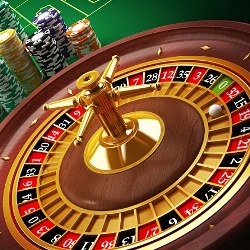Overcoming Biases While Gambling

It order to be a successful gambler, it is essential to overcome any biases that may be detrimental to your game, and especially those that erroneously convince you that you know the outcome of an event before it happens.
Gambler’s Fallacy
One such cognitive bias is known as the Gambler’s Fallacy, which is when an event happening frequently in the past convinces the gambler that it is less likely to occur in the future, and vice versa. It is particularly important to be aware of this bias when playing roulette, as the casino game is designed in such a way that biases are easy to encounter and difficult to avoid. For instance, a gambler falls into the trap when he thinks that if he notices that 75% of the last 10 spins landed on a red number, then there is a greater possibility of a black number hitting over the next few spins. When gamblers bet like this, they lose money while the casinos rake it in.
This month, an interesting article appeared on the Hindu Businessline website which referred to research carried out by Prof Mustansir Barma concerning clusters, or random groupings of similar outcomes. In his post, Barma also mentioned the gambler’s fallacy, or mistake of using the law of averages to determine a future event. As he then explained:
“Randomness has nothing to do with whether you have knowledge about something or not. It is something that you cannot predict in advance. Toss a coin. You won’t know which way it would go. Head or tail? This is a good example of randomness. Intuitively we assume that all natural processes are deterministic. We are wrong. Most phenomena are best modelled as ‘random,’ like a dust particle floating on a liquid surface. The dice has no memory, and the odds for head or tail remains the same. The outcome is random.”
Other Types of Biases
Other types of biases that gamblers frequently face are those related to recency, outcome and confirmation, and while it is impossible to completely overcome any of them, there are ways to effectively control them.
– Recency Bias: Similar to the gambler’s fallacy, this when a person overvalues a recent result when determining the likelihood of certain outcome occurring going forward. This type of bias is especially prevalent among sports bettors.
– Outcome Bias: This when a gambler overvalues the ultimate result of a bet, while undervaluing the decision-making process that led to the bet being placed. In the game of poker, for instance, professional players are focused upon making the correct decision each time they play a hand, and will not allow themselves to be deflected from their strategy simply because they lose a hand due to the randomness of the cards.
– Confirmation Bias: When a gambler seeks out only that information which supports what they perceive to be a betting opportunity, while ignoring other pertinent data to the opposite, they are falling victim to confirmation bias.
Gambling and Investing Similarities
The biases just mentioned apply equally to the stock exchange as they do to the world of gambling. Like a gambler, for instance, investors can be more active trying to avoid a loss rather than trying to secure a comparable profit. For example, investors find it difficult to walk away from their losses, and may even risk losing all their money rather than leaving from a deal early and securing at least half their stake. The same is true for gamblers, who may destroy several winning sessions, and perhaps their whole bankroll, by playing too long during a losing game.
Controlling Bias
For most gamblers, the best strategy for overcoming biases is to understand the scenarios and odds they will be up against while playing a particular game. In blackjack, for instance, gamblers can lower the house edge by following a simple strategy provided for in basic charts and tables.
When it comes to sports betting, the best way to overcome a bias is to weigh equally pertinent information that either supports or contradicts one’s gut feeling about a game. Too many gamblers instead make the mistake of getting distracted by information that does nothing to help them decide on their bet. In other words, choosing which wager to place should be a decision made based upon all the relevant facts.
Though it isn’t always easy to overcome biases while gambling, it can be accomplished with some work. The smartest gamblers have found effective ways to block out unnecessary information and make decisions based on specific thoughts and ideas. They know that biases are the gateway to gambling losses.










